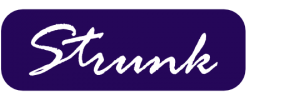Automatically Archive ODP Manager Reports
The ODP Manager hosted software includes a suite of standard reports that are updated after each daily import. These reports can be viewed in the browser or exported to PDF or Excel. Reports for the most recent seven As of Dates are accessible.
If an institution would like the option to review, analyze, or retain past reports, users are able to export and save the reports as needed. However, if reports are not exported and saved within the most recent seven As of Dates, then the report data is no longer available. ODP Manager offers an alternative to manually saving and retaining reports. Upon request, Strunk can set up a Report Archive which automatically archives the requested reports after each daily import. This will alleviate the need to remember to manually save report copies.
The archived reports are saved as PDF files within the software. For each import As of Date, a folder containing the archived reports is created and can be downloaded. If an institution would rather download the archived reports to save to a network drive instead of accessing though the ODP Manager software, a Download Reports Archive link can be set up instead.
If you have any questions about the Report Archive option in hosted ODP Manager, please contact Strunk Support at support@strunkaccess.com to find out more.


